CLARIN Annual Conference 2022
Keynote Speakers
We are delighted to announce that Dr Ariane Nabeth-Halber, Director of Speech AI at ViaDialog, will deliver a keynote at the CLARIN Annual Conference.
She will join our other keynote speakers Prof Dr Barbara Plank, Chair of AI and Computational Linguistics at LMU Munich, and Dr Peter Leinen, Head of Information Infrastructure at the German National Library.
Registration for the Bazaar is Now Open
The CLARIN Bazaar is an informal space at the CLARIN Annual Conference where you can meet people from other centres and countries. Unlike poster and oral presentations, the Bazaar is intended for discussing work in progress, sharing experiences, ideas and visions, and for demonstrating smaller outputs of CLARIN work. If you would like to have a stall in the CLARIN Bazaar, please register here.
Call for Nominations for PhD Session
National consortia are invited to put forward a candidate for the PhD Session at this year’s conference. During the session, PhD students can share their CLARIN-related research and receive feedback on their work from CLARIN experts. Selected candidates will be invited to submit a 500-word abstract of their PhD project, clearly outlining how their work makes use of the CLARIN infrastructure or how the results will contribute to CLARIN. All submitted abstracts will be published on the CLARIN website, as part of the conference programme, and the PhD students will be invited to submit their full papers for the Selected Papers publication after the conference.
Registration for the CLARIN Annual Conference will open in June 2022. Stay tuned!
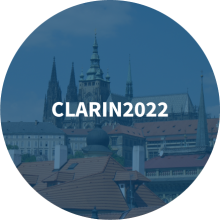
A New CLARIN National Consortium: CLARIN-CH
With the support of the Swiss Academy for Social Sciences and Humanities, various institutions in Switzerland are preparing for the country to formally join CLARIN . Six research and academic institutions from the German-, French- and Italian-speaking parts signed to join the CLARIN-CH consortium in December 2020. CLARIN-CH activities are coordinated at the University of Zurich by Prof. Dr. Marianne Hundt as National Coordinator and Dr. Cristina Grisot as Scientific Coordinator. The CLARIN-CH website provides an overview of Swiss national assets in terms of language resources and a large array of expertise in the area of language sciences and its various sub-fields.
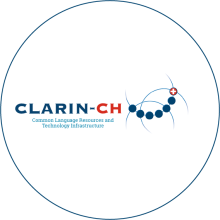
Job Opening: Head of Operations at CLARIN ERIC
Utrecht University, Utrecht, The Netherlands
CLARIN ERIC is looking for a Head of Operations to join the central office. Main responsibilities include the coordination of the Office team, as well as working closely with the Executive Director and Technical Director in key areas relevant to CLARIN’s strategy and development. CLARIN is looking for candidates who provide dynamic leadership and understand the organisational and technical issues involved in structure and governance of an international organisation.
Deadline for applications: 1 June 2022
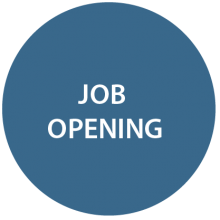
Blogs & Reports
Recap of the CLARIN Café: Bilingual and Multilingual Corpora
The CLARIN Café on Bilingual and Multilingual Corpora took place on 29 April 2022. More than forty participants from various countries and organisations participated in the online event, which was divided into two parts. The first part provided an introduction to CLARIN and its Knowledge Centres, including new developments at the CORLI K-Centre. The second part on parallel, comparable and dialectal bilingual/multilingual corpora, gave insights into data collection, annotation, analysis and sustainability. Thanks to the presence of researchers from all around the world, presentations and discussions provided some new insights in the specifics of multilingual and multidialectal corpora and underlined the need for common practices in the domain of multilingual corpus building and management.
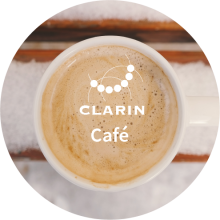
Helsinki Digital Humanities Hackathon 2022 (#DHH22) Project Presentations
The Helsinki Digital Humanities Hackathon took place at the University of Helsinki from 11 to 20 May 2022. As a joint CLARIN and DARIAH summer school, the event was open to students and researchers of the humanities, social sciences and computer science and aimed to stimulate interdisciplinary cooperation under the heading of digital humanities. The public presentation of the #DHH22 projects took place last Friday, 20 May 2022. For the theme of ‘Parliamentary Networks’, the team worked on data from CLARIN’s flagship project ParlaMint and explored whether speeches given by MPs give insights into the power of MPs within political debates, and how the speech practices of female and male MPs relate to topic and power distribution in parliament.
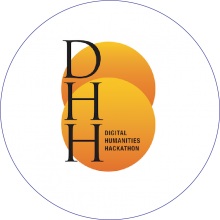
Training and Education
Teaching with CLARIN Call
Teachers and trainers who have used the CLARIN core services (such as the Virtual Language Observatory, the Virtual Collection Registry, Content Search, or the Language Resource Switchboard) to teach language research, methods, or different aspects related to linguistic data management, FAIR and open science, are encouraged to share their stories and teaching materials via the Teaching with CLARIN Call. All eligible materials will be showcased in the Teaching with CLARIN session at the CLARIN Annual Conference in Prague, which will take place from 10-12 October 2022.
Deadline for submissions: 30 June 2022
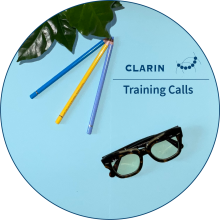
Teaching with CLARIN Workshop at TaLC 2022
13 July 2022, Limerick, Ireland
This half-day workshop offering three tutorials is a pre-conference event for participants at the Teaching and Language Corpora conference (TaLC, 13 - 16 July 2022). In line with CLARIN’s involvement in the UPSKILLS project, tutorial 1 focuses on how teachers can use the CLARIN infrastructure to collect an annotated corpus from scratch using web services like the Virtual Language Observatory. Tutorial 2 teaches the key corpus linguistics techniques on the research problem of women's representation in parliament using the ParlaMint corpora. In tutorial 3, participants can get hands-on experience with the web application CLiC, a tool for reading and analysing narrative fiction.
Read more: https://www.clarin.eu/event/2022/teaching-clarin-workshop-talc-2022

Events & Calls
Save the Date(s): CLARIN-Related Activities at LREC2022
20 - 25 June 2022, Marseille, France
For this year's LREC, CLARIN is organising the ParlaCLARIN III workshop on ‘Creating, Enriching and Using Parliamentary Corpora’, which will take place on 20 June 2022. The detailed programme of the full-day workshop and information about all presentations, including the keynote by Dr Luke Blaxill, are now available on the ParlaCLARIN event page.
In addition, there will be several other CLARIN-related presentations in the main conference programme, as well as workshops organised by CLARIN nodes and ambassadors. These include SIGUL 2022 (24 - 25 June, CLARIN-IT), the 4th Financial Narrative Processing Workshop (24 June, co-organised by CLARIN ambassador Paul Rayson), and the tutorial on ‘Using a European infrastructure to foster cooperation on French language resources at a national level and beyond’ (24 June, Nicolas Larrousse, NRS Huma-Num). For an overview of CLARIN-related activities at LREC, see this dedicated webpage.
(Late) registration closes 25 June 2022.
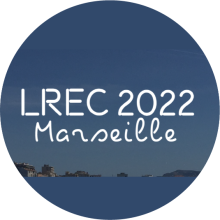
Full-Text Resource Processing Training Workshop
Jupyter notebooks are an excellent introduction to the essential principles of large-scale data processing, whether in a local environment or in computational environments available in today’s cloud-based ecosystems for open science. In this training session, jointly organised by CLARIN and Europeana, we demonstrate the use of Jupyter notebooks to education professionals working in an academic context and provide them with initial hands-on experience adapting and extending pipelines for Natural Language Processing ( ) of text resources. Participants will discover how Jupyter notebooks can be used to explore and process textual resources with publicly available NLP tools using resources from the Europeana Newspapers Collection. The workshop is aimed at scholars with an interest in, but limited experience with, programmatic approaches to NLP. Spaces are limited to 16 participants.
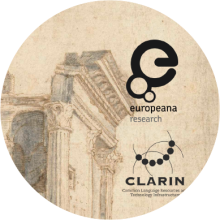
DARIAH Annual Event 2022: Storytelling
31 May - 3 June 2022, Athens, Greece (hybrid event)
Storytelling is a sense-making and knowledge-creation strategy deeply embedded in human cultures. How we gather, share and use stories says much about who we are, how we entertain and educate, how we build identities and understand the world beyond our vision. The DARIAH Annual Event aims to build conceptual bridges between the arts, technology, humanities, and beyond. To this end, the four-day programme offers keynotes, a poster and demo session, as well as parallel paper sessions, all looking at research practices and infrastructures through the lens of storytelling.
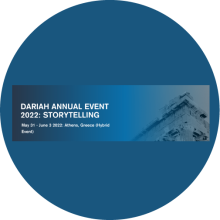
Webinar on ‘The News Framing of Artificial Intelligence’ by the Centre for Digital Humanities at Utrecht University
9 June 2022, virtual event
How do news media portray Artificial Intelligence (AI)? In this webinar, Assistant Professor for Digital Literacy and Digital Methods Dennis Nguyen talks about his research on ‘The news framing of Artificial Intelligence: A critical exploration of how media discourses make sense of automation’. Analysing how news media portray AI reveals what interpretative frameworks around the technology circulate in public discourses. This allows for critical reflections on the making of meaning in prevalent narratives about AI and its impact.

MetaForum 2022
8 - 9 June 2022, Brussels, Belgium (hybrid event)
As a conference series on innovative language technologies for the multilingual information society, META-FORUM is a place to learn about the most recent developments and achievements in European language technology. In this year’s edition, the projects European Language Grid (ELG) and European Language Equality (ELE) will be featured. CLARIN will be represented by Darja Fišer in a panel discussion on the European language-centric AI community, and Maria Eskevich in a session on the demands, needs and gaps of the European language technology community. During the asynchronous Project Expo, conference attendees can learn more about CLARIN’s flagship project ParlaMint, as well as other European projects.
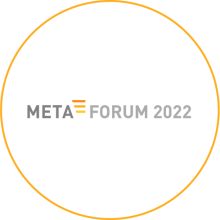
UPSKILLS event: Enhanced Employability of Language and Linguistics Students
8 June 2022, Lugano, Switzerland (hybrid event)
The UPSKILLS team at the University of Zurich is organising the Linguists in Tech - A Swiss Perspective. Its goal is to bring together members of academia, students and companies across Europe to work on improving the employability of language and linguistics students. This will be a hybrid event combined with the conference SwissText 2022.
Registration Open: The 32nd Meeting of Computational Linguistics in the Netherlands (CLIN32)
17 June 2022, Tilburg, the Netherlands
This in-person event will focus on theoretical and applied work on all aspects of computational linguistics and natural language processing. The organisers especially welcome contributions on language technology for Dutch Sign Language (NGT) and Flemish Sign Language (VGT), as well as language technology for Dutch and Flemish online (forum) discussions.
Deadline for registration: 13 June 2022
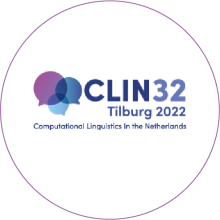
Extended Deadline: Language Technologies and Humanities Conference
15 - 16 September 2022, Ljubljana, Slovenia
This conference will bring together researchers from various backgrounds and methodological frameworks. Topics include speech and language technologies, digital linguistics, and digital humanities in research, education and publishing. The organisers invite submissions on research, good practices and projects in these areas.
New deadline for extended abstracts: 30 May 2022
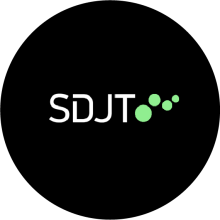
Lexicom Workshop on Lexicography and Lexical Computing
13 -17 June 2022, Telč, Czechia
Organised by research company Lexical Computing, this five-day intensive workshop in lexicography and lexical computing combines practical work and theoretical perspectives in order to provide training in the making of corpus-based dictionaries and the software that supports this activity. The organisers invite participants from the publishing and software industry, scholars of linguistics, computer science, translation studies, and computational linguistics, and those working for government agencies. Three free places are reserved for interested participants from Ukraine.
